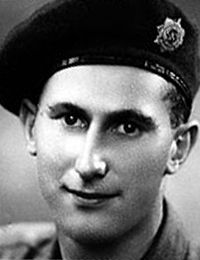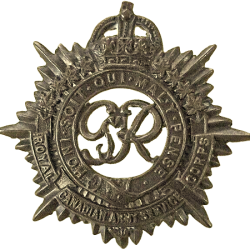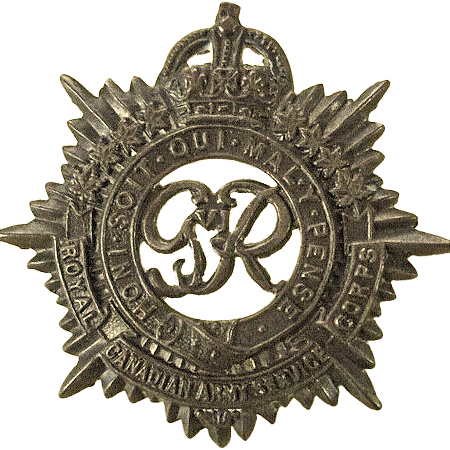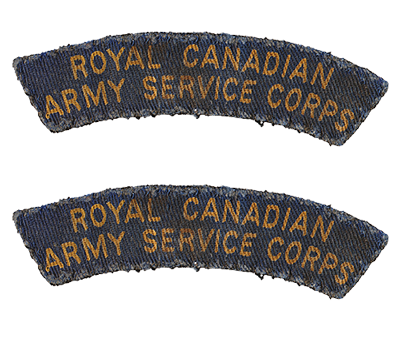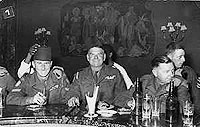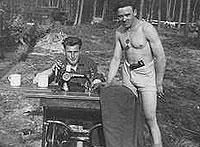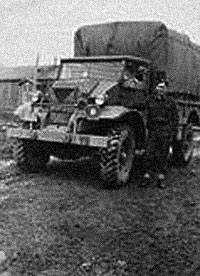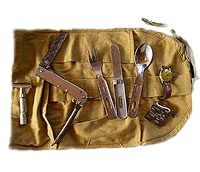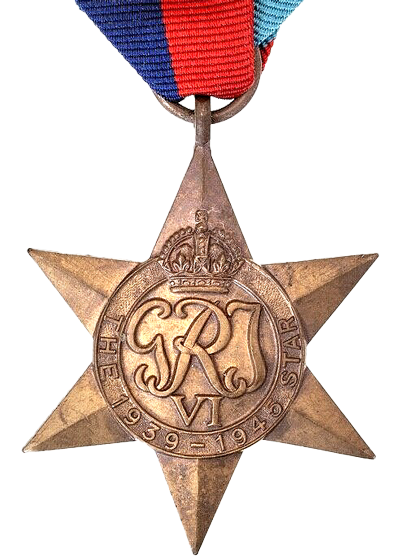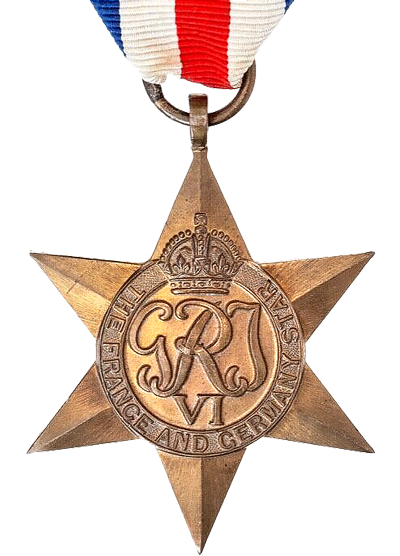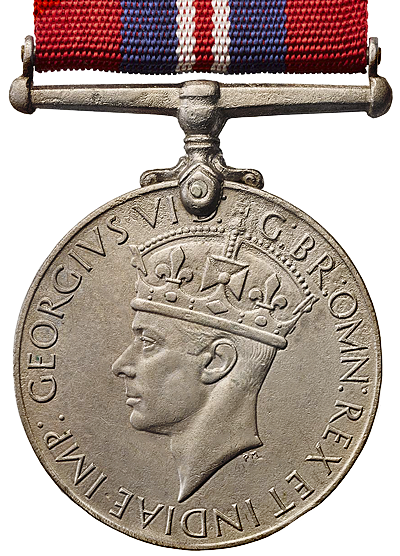My name is David Ward. I joined the army when I was 18 years old. I joined up on the 4th of September of 1939. And then I went from there to Camp Borden, for basic training and then from there I went to Camp DeBert, Nova Scotia. And that was what they called a staging area. We regrouped there and shipped out from Halifax overseas to England. We went over on the old Empress of Canada. And then we went to Aldershot. That's where we took our training. We went over to Normandy from there. That's where we landed on D-Day. And that's when all the fun started. They were shooting at us then and we weren't playing war games. It was the real thing.
Normandy
I was on the first batch that landed on D-Day. And landed at 7:30 in the morning and I was on a hospital ship and we had to be evacuated first, they needed the hospital ship for taking the wounded out, so we had to get in there good and early. I was on ammunition detail. I was delivering ammunition. And we built ammunition dumps. And we... on the first day we were right up into Caen. We went too fast and we had to retreat when we got into the enemy lines up in that area.
Then the push through France, Belgium and Holland crossing the boarder at Breda then taking main Nijmegen highway to the Grave Bridge stopped turned right into the village of Grave past it into a forested area were we dug in for fall of 1944 and the winter and spring of 1945. We operated our supply, dumps in the surrounding areas. We were frequently call by the Red cross to evacuate civilians from dangerous situations, we were on many such operations but this one I remember the most. It was a cold dark wet night. We had just turned in for the night when we got the call ok boys up and get ready. As a platoon we usually traveled in packs of six 3 ton trucks we got a briefing that we were going to evacuate a maternity hospital in the Nijmegen area. The Germans were retreating and had broken the dikes and flooding the area around the hospital.
We had to get them out of there in a hurry because they were coming under heavy artillery fire from the German guns using air burst shells you could hear the shrapnel hit the water I am sure some of the young girls were wounded but it was pitch black night everybody was crying and screaming and we had to get them out of there as quick as possible so we continued to load them on to our trucks.we then proceeded back along the dike still under fire to a safe area were they were unloaded and taken care of,mission completed on to the next one. A good example of what the word (Service) means in our Regiment's. name. Incidentally our platoon was given an accommodation call a M.I.D. (a mention in dispatches). The whole operation took about four hours, we returned to our area to continue our broken sleep.
Stanley Ross Dobson
In Holland my comrade Pte. Stanley Ross Dobson got killed in action. Ths was a unique coincidence in my life, if fate hadn't intervened it well might have been me. I had some pretty close calls but always seem to come out ok.We called him Dobby for short, I was next to him in Normandy June 1944 when he was first wounded in action. He was evacuated back to England for medical care,he returned to our unit in Mar. of 1945 the day he was killed we were on a ammunition detail. after we picked up our load of ammo. We proceeded out of the ammo dump to make our delivery I was right behind him I saw this Tiger Tank up head and it fired on his truck killing him but his spare driver survived being hit in the legs as he was taking to the ditch beside me and my spare driver.They kept firing over our heads and finally left just before this happened we were being shelled with German 88's and had to take to our Fox Holes.
Dutch Boy
This story begins in north eastern part of Holland in the farm lands in between Deventer and Zwolle. It was a bright sunny day and we were loading ammunition from our dump when we came under fire from the German 88', we took cover in our slit trench which were already dug and could accommodate two or three soldiers. In a lull in the firing I popped my head up and saw this young boy about ten years old with a (Fiets) bicycle and a dog running around in panic and crying. I called to him in my in my limited Dutch (Kom maar jongen) come boy, he came running with the bicycle and followed by the dog , he was wearing (Klompen) wooden shoes I remember that well because he landed on top of me when he jumped into the slit trench followed by the dog, things got a bit crowded in the trench. I had to draw the line when he wanted to bring the bicycle in after the shelling stopped we all settled down I gave him a few chocolate bars and he went happily on his way. an he lived happily ever after I hope, as for me it was just another day in the life of a Cdn. soldier.this boy would be in his seventies if he is still alive today? Maybe he would remember this day as I did. That's my story of the little Dutch farm boy
Germany
And then we had the whole campaign all through Germany. Up all along the coast of France and Belgium and Holland. In the spring of 1945 that's when we were in that Reichwald Forest. I was more or less a truck driver and our job was to deliver the ammunition to the guns and to the troops. And, of course, we could carry a lot of junk around with us and that's when I latched onto that sewing machine. I got that out of an old bombed farm house. And I was part-time tailor and did all the tailoring for the guys.
After the war was finished... and the armistice was on the 8th of May, 1945, we had a point system then for getting home. The point system was based on the length of time you served and whether you were married and had children or not, you got x number of points. I had lots of service in, but, being single I didn't have enough points, so I was on, what they called, the army of occupation and I served on that from May 'til September. The war was finished, but then we had to dispose of all these German ammunition dumps that were laying all over the country. So we took all that German ammunition, loaded them on boats and they took it and dumped out to the North Sea.
The fishermen are still dragging it up out there. And they're wondering where it's coming from. Well I said, "All they had to do was ask us and we could have told them." From then we went back to England and then sat around there for a few months and then, finally we came back home. And when I got home the love bug got me and I got married. And then, of course, I sort of enjoyed the army and work wasn't too plentiful around the time, so I got out of the army and they were taking us back in again. We had the option and then that's when I got back in the army and then I started to make a career out of it.
David Ward
